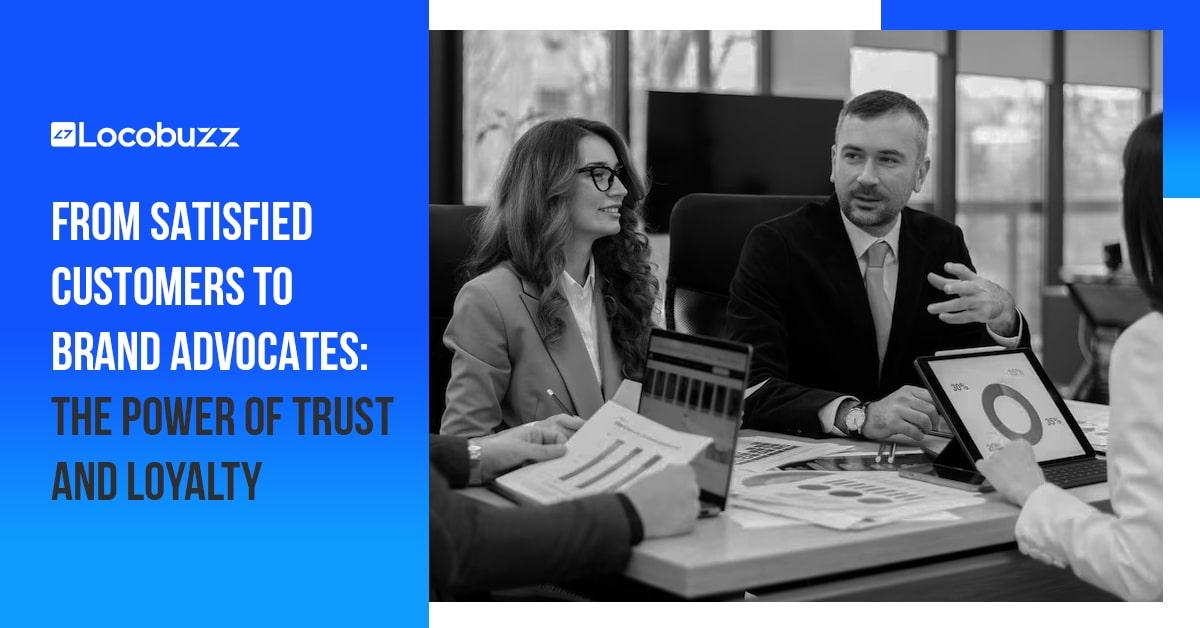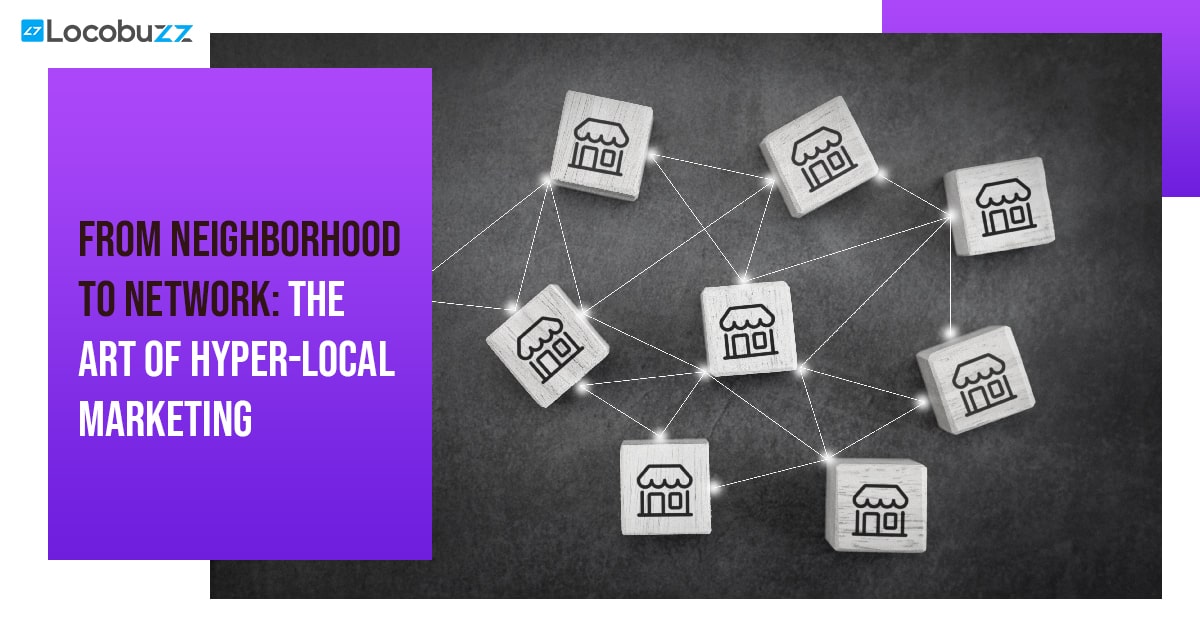Online Reputation Management for Fintech [Complete Guide]

With so many fintech brands and the increasing competition out and about in the market, it’s become tough for fintech businesses to stand out and gain a credible reputation for themselves.
What differentiates one fintech brand from the other and gains customer trust is its credibility and its online reputation, which is what these businesses struggle with due to the prevalence of the cybercrimes and data breaches that are apparent these days.
But the one thing that can help ease this struggle for the fintech company is the Online Reputation Management (ORM) tool. A fintech brand’s online reputation can make or break its brand – positive feedback can help it gain market recognition, while negative reviews can cause a stain on the brand’s reputation.
That’s why ORM is necessary, especially if you want your fintech brand to not just survive, but thrive and grow in this competitive and customer-centric economy.
According to a study done by Forbes,
“97 percent of business owners have said that online reputation management is important to their business.”
And so, this blog will be your complete guide to learn everything you need to know about online reputation management for fintech. From tools to case studies, we’ve covered it all!
Why is Online Reputation Management Important for Fintech?
Online Reputation Management (ORM) drives your fintech business’s growth. It involves managing your fintech brand’s online image and improving it. It provides insights into your fintech company’s goodwill, media coverage, how customers perceive your fintech and its services online, its reviews, and thus helps in building trust with the customers and retaining them.
Just like your good name matters in real life, your online reputation matters a lot in fintech. In the competitive fintech landscape, having a strong reputation sets your brand apart. It shows compliance with regulations, sets you apart from competitors, and builds confidence among your investors and stakeholders.
What fintech companies struggle with these days is building a good name for themselves, attracting an audience, and building a trustworthy relationship with them. What ORM does is enable companies to analyze data and analytics effectively. By leveraging ORM tools, fintech firms can cultivate a credible reputation, earn customer trust, and ultimately foster long-term customer retention.

Your Fintech Brand's Current Online Reputation
Before managing your fintech business’s online reputation, you need to assess and know where your brand’s current reputation stands. This forms the foundation upon which your Online Reputation Management (ORM) strategy will be built. Here’s how you can access your Fintech Brand’s Current Online Reputation:
1. Conduct searches:
Use search engines like Google, Bing, and social media platforms to search for your fintech company name, products, and key executives. Take note of the search results analyze the various reviews and mentions, and find out what differentiates your fintech brand and services from the thousand other competitors.
2. Monitor social media:
Keep a close eye on mentions and engagement of your brand across social media platforms such as Twitter, Facebook, LinkedIn, and others. Find out what your audience is saying about your services, sentiment, and engagement levels, and participate in the discussions related to your fintech brand.
3. Review customer support channels:
Review the feedback and inquiries that your fintech brand has received through its customer support channels such as email, chat support, and customer service hotlines. Identify common issues and concerns that the customers face with fintech, and how your fintech brand can help solve them.
4. Conduct surveys and feedback sessions:
Gather direct feedback from your audience through surveys, feedback forms, or focus group discussions. Ask about their experiences with your fintech products or services, their overall perception of your brand, and whether they would come back to use your services.
5. Analyze competitor activity:
Keep an eye on your competitors’ online presence and reputation to benchmark your performance and identify areas for improvement. This is especially important for fintech brands, because of the competition and the data security issues.
How Is ORM for Fintech Different From Other Sectors?
Managing online reputation for fintech companies is different from other industries.
- The fintech industry is firstly tightly regulated, meaning companies must ensure their online actions comply with the regulations about financial transactions and customer data.
- Trust and security are the basics in fintech due to handling sensitive financial information, so reputation management needs to focus on reassuring customers about data safety.
- Fintech companies operate in a rapidly changing technological landscape, so ORM strategies must keep pace with new trends and platforms.
- Since fintech is influenced by financial market shifts, ORM needs to be flexible to handle reputation challenges arising from economic changes or regulatory updates.
How Online Reputation Management(ORM) Works For Fintech?
Online Reputation Management for a fintech brand is a mix of identifying the problems that customers face with fintech, assessing the brand’s current position, strategizing with the same data, proactively implementing measures, and monitoring, and tracking metrics to maintain a positive online presence.
It operates through several steps, including:
1. Setting Realistic Goals:
Clearly set your ORM goals for a fintech company, such as increasing brand visibility, customer loyalty, or managing reputation risks, and ensure that they are achievable.
2. Audit Current Reputation:
Evaluate your current online reputation by searching for your fintech brand, products, and executives on search engines and social media along with your competitors. Analyze reviews, ratings, and mentions to understand the sentiment, and areas of hardship, and then identify and work on areas for improvement.
3. Develop ORM Strategy:
Create a strategy with your team based on your research, objectives, and audit findings. This should include tactics for proactive reputation building, gaining customer trust, monitoring, and crisis management.
4. Proactive Reputation Building:
Proactive reputation building is what will help your fintech brand maintain its reputation. Implement strategies like delivering excellent customer service, soliciting positive reviews, creating engaging content, and participating in the fintech industry’s discussions to build a positive online reputation.
5. Monitor Online Presence:
Use ORM tools to track down the online conversations, mentions, and reviews that are going around about your Fintech brand. Set up alerts for brand mentions and keywords to stay informed and updated about your brand’s conversations that are going on around the internet.
6. Crisis Management:
Because the fintech industry is volatile and goes through changes frequently, have a plan ready in advance to handle reputation crises or negative publicity that are contingent on your fintech brand. Act swiftly, communicate openly with stakeholders, and take proactive steps to address issues and rebuild trust.
7. Measure and Analyze Results:
Regularly measure your fintech brand’s ORM effectiveness by tracking metrics such as sentiment analysis, online engagement, and customer satisfaction, and then analyze the data to drive better results for your fintech brand.
Discover how Locobuzz transform the fintech industry with our ORM Capabilities.
Proactive Reputation Building in Fintech
Planning ahead and keeping yourself updated about the current happenings in the stock market and fintech industry is important in Fintech.
Proactive reputation building in fintech involves estimating your fintech brand’s current reputation, identifying the industry trends, shaping your strategies according to these trends, and taking deliberate actions to shape a positive perception of your brand before any issues arise.
This includes delivering exceptional customer service, encouraging positive reviews, creating valuable content, engaging with your audience, establishing customer trust, and thought leadership, forming strategic partnerships, and highlighting security measures for your fintech services.
In the fast-paced and highly competitive fintech industry, this proactive approach is essential for attracting customers, investors, and partners.
A strong reputation enhances credibility and trust, which is important in today’s customer-centric fintech environment, where you need to set your brand apart from competitors to win.
By actively building and nurturing a positive reputation, fintech companies can establish themselves as the top fintech leaders, maintain long-term customer relationships, and mitigate potential reputation risks.
Handling Negative Reputation Crisis in Fintech
Dealing with a negative reputation crisis in fintech involves managing situations where your company and its services are negatively perceived. It’s important because a damaged reputation can deter customers and investors from using your financial services, harming your fintech business in the long term.
To handle these fintech crises effectively, swift and transparent action is the key. Your first step in handling a negative reputation crisis would be identifying the issue and communicating openly about it with your audience.
Keep the stakeholders informed about your efforts to resolve the problem and prevent any recurrence. Provide remedies to the affected parties like refund for the movie tickets that they booked online through your fintech website, listen to their concerns, and collaborate with regulators if necessary. Once the crisis subsides, analyze the experience and the ways in which you could have approached the problem to strengthen your crisis management plans.
Through transparency, accountability, and prompt resolution, fintech firms can bounce back from the reputation crises and rebuild trust.
Online Reputation Management Tools for Fintech
When it comes to managing your fintech company’s online reputation, using the right tool can make a big difference. Locobuzz streamlines the whole process for fintech companies and provides insights to help you make informed decisions.
But what is Locobuzz?
Locobuzz is a leading ORM tool tailored for Fintech industries, which is trusted by many Fintech brands in the market. It offers real-time monitoring of online conversations about your fintech brand across social media platforms like Twitter, Facebook, Instagram, review sites, and the press. By tracking brand mentions and customer sentiment, Locobuzz enables fintech companies to address customer complaints promptly, rectify issues proactively, and mitigate potential crises before they get any worse.
Case Studies: Successful Fintech ORM Strategies
Adani Group: Rose from the Ashes
The Adani Group is a prominent Indian conglomerate.
At the start of 2023, the conglomerate faced a grave challenge. They were accused by the Hindenburg Research Agency of engaging in unethical practices such as stock manipulation and money laundering through offshore entities. This led to a sharp decline in Adani Group’s stock prices, resulting in a loss of over $100 billion in market value.
To address this crisis, the Adani Group aside from working on their company, also focused on improving their online reputation management (ORM) efforts. They prioritized reducing their debt burden, securing additional funding through equity sales and bond offerings, and refocusing on their existing projects. By taking these proactive steps, along with potential legal action, the Adani Group was able to partially recover its stock prices and restore investor confidence.
HDFC Digital Banking: Revolutionized the Traditional Banking System
HDFC Digital Banking revolutionized the traditional banking experience by offering online and mobile app services, allowing customers to manage their finances conveniently. To handle their online reputation management, HDFC partnered with Locobuzz, an ORM company, to establish a dedicated Digital Command Center. This enabled HDFC to:
– Identify potential business opportunities and track their customer needs by monitoring online conversations.
– Identify the customer challenges in smaller cities by analyzing online discussions.
– Improve response times and customer satisfaction.
– Stay competitive by monitoring the activities of other banks and marking the opportunities for improvement.
– Handle the crises that come their way and maintain brand integrity and customer trust.
Through these ORM strategies, HDFC Digital Banking strengthened its online presence, improved customer engagement, and effectively managed its reputation in the fintech industry.
Conclusion
In conclusion, online reputation management (ORM) is an important tool for fintech companies to survive & grow in today’s digital economy.
As highlighted throughout this blog, ORM plays an important role in building trust, attracting customers, and differentiating brands in a competitive fintech market. By proactively managing their online reputation, fintech companies can handle risks, address customer concerns, and maintain their integrity even in the face of challenges.
From monitoring online conversations to engaging with stakeholders, ORM leverages the right tools and strategies, to help fintech companies maintain their reputation.
Locobuzz is one of the best ORM tools for fintech in the market. With its proven track record, top-notch services, and customer service, it helps build trust and a positive reputation for a fintech company in the customer’s mind.
To make the most of ORM though, it’s necessary to conduct thorough research, identify your fintech company’s ORM goals, and then devise your strategy accordingly.
With ORM, fintech companies can manage their online presence, build customer trust, and position themselves as fintech leaders in the competitive fintech industry.






















